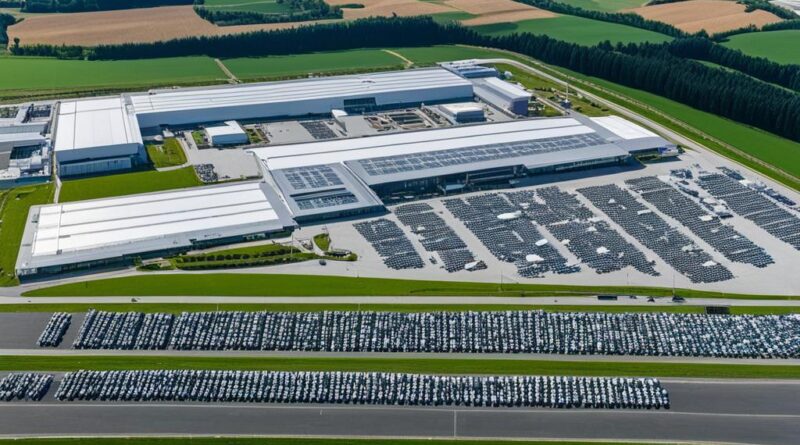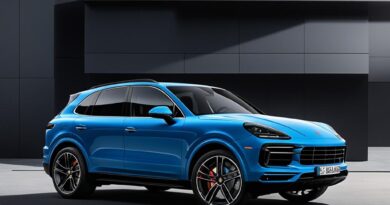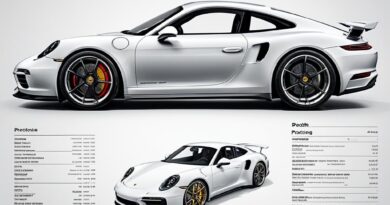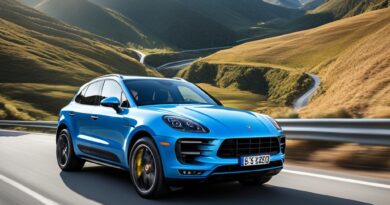Origin of Porsche: Which Country Crafts Them?
Porsche is a renowned luxury automotive brand known for its precision, high performance, and impeccable craftsmanship. Many car enthusiasts often wonder, “Which country makes Porsche?” The answer lies in the heart of German automotive engineering.
Germany, specifically the city of Stuttgart, is the birthplace of Porsche. Often referred to as the Detroit of the German auto industry, Stuttgart is not only home to Porsche but also to other iconic brands like Mercedes-Benz. With a long-standing history in automotive engineering, Stuttgart is considered a manufacturing cradle, producing some of the world’s most exceptional vehicles.
German engineering is renowned for its attention to detail, precision, and commitment to quality. Porsche, being a German brand, exemplifies these traits, making it synonymous with excellence in the automotive industry.
Key Takeaways:
- Porsche is crafted in Germany, specifically in Stuttgart.
- Stuttgart is known as the Detroit of the German auto industry.
- German engineering is renowned for its precision and quality.
- Porsche is synonymous with excellence and high performance.
The Legacy of Ferdinand Porsche
Ferdinand Porsche, the founder of the Porsche brand, was an influential figure in the German auto industry. He began his career at the renowned Daimler Benz, where he honed his engineering skills and gained valuable experience in car design. However, Ferdinand Porsche’s true legacy lies in his visionary approach to the automotive industry.
After leaving Daimler Benz, Porsche established his own consulting firm, where he collaborated with various car companies to provide expert advice on design and engineering. It was during this time that the foundation of the Porsche brand was laid.
“Ferdinand Porsche’s vision was to create a small, affordable car that could be mass-produced and accessible to the average German citizen,”
This groundbreaking vision led to the development of the Volkswagen Beetle, which would become one of the most iconic cars in history. The Volkswagen Beetle revolutionized the industry by combining affordability, reliability, and exceptional engineering.
Ferdinand Porsche’s innovative designs and engineering expertise set the stage for the creation of the Porsche brand. His dedication to creating accessible yet high-performance vehicles paved the way for the success that Porsche enjoys today.
Continuing the Legacy
Even after his passing, Ferdinand Porsche’s legacy lives on in the core values of the Porsche brand. The company remains committed to excellence, precision, and pushing the boundaries of automotive engineering.
Today, Porsche continues to produce exceptional vehicles that embody the spirit of German engineering. The craftsmanship and attention to detail that Ferdinand Porsche instilled in the brand can be seen in every Porsche model.
As the brand evolves and embraces new technologies, Porsche remains dedicated to delivering the ultimate driving experience while staying true to its heritage.
| Year | Model |
|---|---|
| 1948 | Porsche 356 |
| 1963 | Porsche 911 |
| 1996 | Porsche Boxster |
| 2002 | Porsche Cayenne |
| 2004 | Porsche Carrera GT |
Table: Milestone Models of Porsche
The table above showcases key models that mark milestones in the history of Porsche. From the iconic Porsche 911 to the innovative Porsche Cayenne, each model represents the brand’s commitment to excellence and continuous evolution.
The Birth of the Porsche 911
One of the most iconic models produced by Porsche is the Porsche 911. The 911 was introduced in 1964 and quickly gained a reputation for its performance and design. The initial concept of the 911 was to create a small, affordable sports car that could be driven daily. Over the years, the 911 has undergone numerous advancements and model changes, but its basic concept has remained unchanged. The 911 has become a symbol of Porsche’s commitment to excellence and its ability to balance luxury and performance.

Evolution of the Porsche 911
The Porsche 911 has evolved over the years to meet the increasingly demanding needs and desires of car enthusiasts. Each new model introduced exciting advancements in technology, performance, and design. Here is a brief overview of the different generations of the Porsche 911:
| Generation | Years | Notable Features |
|---|---|---|
| 1st Generation (Classic) | 1964-1989 | Distinctive design, air-cooled engine |
| 2nd Generation (964) | 1989-1994 | More refined design, increased comfort |
| 3rd Generation (993) | 1995-1998 | Last air-cooled model, improved performance |
| 4th Generation (996) | 1999-2004 | First water-cooled model, modernized look |
| 5th Generation (997) | 2005-2012 | Improved performance, refined interior |
| 6th Generation (991) | 2012-2019 | Enhanced aerodynamics, advanced technology |
| 7th Generation (992) | 2019-present | Sleeker design, hybrid powertrain options |
The Manufacturing Process of Porsche
Porsche vehicles are primarily manufactured in Germany. The main manufacturing plant is located in Stuttgart-Zuffenhausen, where the company’s headquarters are also situated. The Zuffenhausen plant is known for its state-of-the-art facilities and advanced manufacturing processes. Porsche takes great pride in its rigorous quality control measures and attention to detail during the manufacturing process. Each Porsche vehicle goes through a meticulous assembly process, ensuring that every car meets the brand’s high standards of excellence.
At the Porsche manufacturing plant in Stuttgart-Zuffenhausen, skilled engineers and technicians work diligently to craft each vehicle with precision and expertise. The manufacturing process starts with the selection of the finest materials and components to guarantee the highest level of quality in every aspect of the car.
“Our commitment to excellence is reflected in every step of the manufacturing process. From the initial design to the final assembly, we leave no stone unturned to deliver exceptional vehicles that exceed our customers’ expectations.”
Once the components are ready, they are carefully assembled using cutting-edge technology and precision machinery. Skilled craftsmen work on various stages of the production line, meticulously fitting each part and conducting thorough quality checks at every step.
One of the defining features of the Porsche manufacturing process is the high level of customization available to customers. Porsche offers a wide range of customization options, allowing buyers to personalize their vehicles to their exact specifications. These bespoke touches are meticulously incorporated into the manufacturing process, ensuring that every Porsche reflects the unique taste and style of its owner.
The final stage of the manufacturing process involves comprehensive quality control inspections, where every aspect of the vehicle is thoroughly examined to meet the brand’s stringent standards. Only after passing these rigorous tests does a Porsche vehicle receive the iconic badge of excellence and leave the manufacturing plant, ready to deliver an unrivaled driving experience.
The Precision and Craftsmanship Behind Each Porsche
One of the hallmarks of Porsche is its commitment to precision and craftsmanship. Every detail, from the meticulously stitched leather seats to the hand-finished exterior paint, is a testament to the brand’s dedication to perfection.
Engineers and technicians at the Porsche manufacturing plant employ cutting-edge technology, such as robotic assembly lines and computer-controlled systems, to ensure consistent quality and precise engineering. Every Porsche vehicle is a work of art, meticulously crafted to not only deliver exhilarating performance but also exude elegance and sophistication.
| Stage | Process |
|---|---|
| 1 | Design and Engineering |
| 2 | Component Selection and Preparation |
| 3 | Precision Assembly |
| 4 | Customization and Personalization |
| 5 | Quality Control Inspections |
Throughout the manufacturing process, Porsche places great emphasis on sustainability and environmental responsibility. The company strives to minimize its environmental impact by implementing energy-efficient practices and reducing waste. Porsche’s commitment to sustainability extends beyond the manufacturing process, as the brand actively explores alternative energy sources and develops innovative technologies to create a greener future for the automotive industry.
Porsche’s Global Reach
While Porsche vehicles are primarily made in Germany, the brand has expanded its manufacturing footprint to meet the growing demand for its vehicles worldwide. In addition to its production facilities in Germany, Porsche has established manufacturing plants in China, Slovakia, and the United States.
These strategically located plants allow Porsche to cater to international markets and ensure efficient production and delivery. By manufacturing vehicles closer to their target markets, Porsche can better align with regional preferences and streamline distribution.
However, it’s important to note that the heritage and craftsmanship of Porsche still remain deeply rooted in Germany, where the brand originated. The German manufacturing facilities continue to play a pivotal role in upholding Porsche’s commitment to exceptional quality and precision engineering.
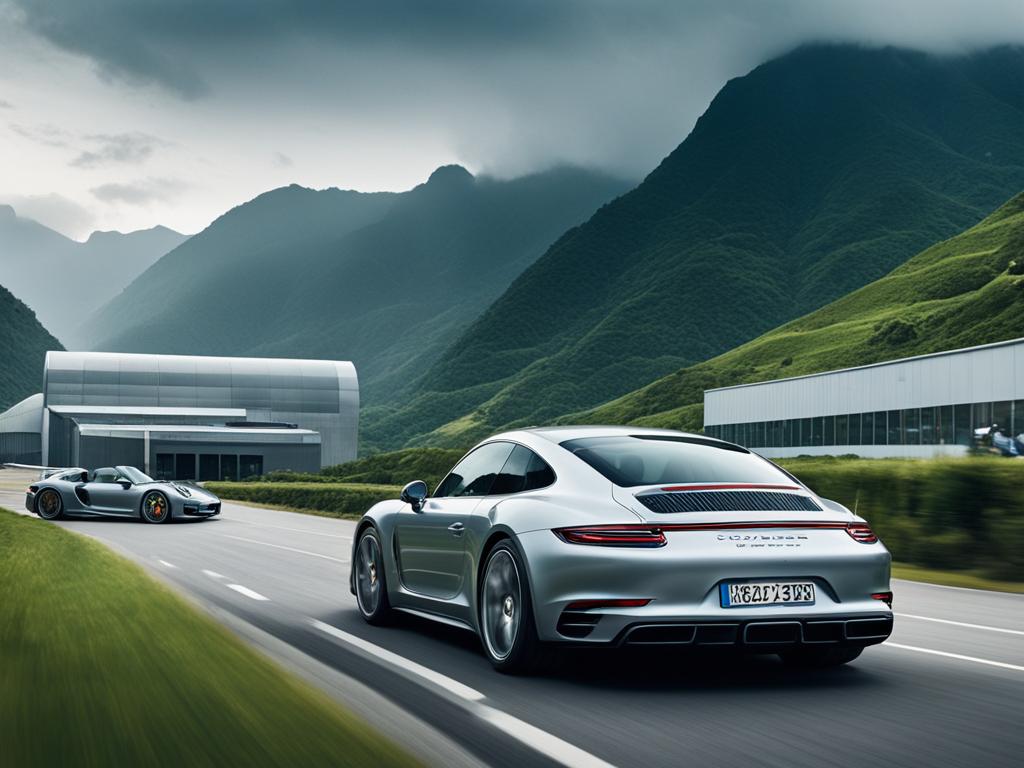
Manufacturing Facilities
| Country | Manufacturing Plant |
|---|---|
| Germany | Stuttgart-Zuffenhausen |
| China | Shanghai |
| Slovakia | Bratislava |
| United States | Atlanta, Georgia |
These manufacturing plants are equipped with state-of-the-art facilities and adhere to Porsche’s stringent quality control measures. Each plant follows the brand’s meticulous manufacturing processes to ensure that every Porsche vehicle meets the high standards of excellence that the brand is known for.
By establishing a global manufacturing presence, Porsche is able to efficiently meet the demands of its customers and maintain its position as a prestigious luxury brand with a global reach.
Porsche’s Commitment to Sustainability
Porsche is not only renowned for its exceptional performance but also for its steadfast commitment to sustainability. The company is actively exploring innovative ways to reduce its carbon footprint and promote eco-friendly practices throughout its operations.
As a strong proponent of renewable energy, Porsche is at the forefront of utilizing sustainable power sources in its manufacturing processes. The company has implemented various initiatives to harness renewable energy, such as solar panels and wind turbines, to power its production facilities and reduce dependence on traditional electricity sources.
One significant step that sets Porsche apart is its pioneering use of eFuels. These synthetic fuels, derived from CO2 and hydrogen, are produced using renewable energy sources. Unlike conventional fossil fuels, which contribute to greenhouse gas emissions, eFuels offer a more sustainable alternative. By utilizing eFuels in its vehicles, Porsche takes an active role in reducing carbon emissions and combating climate change.
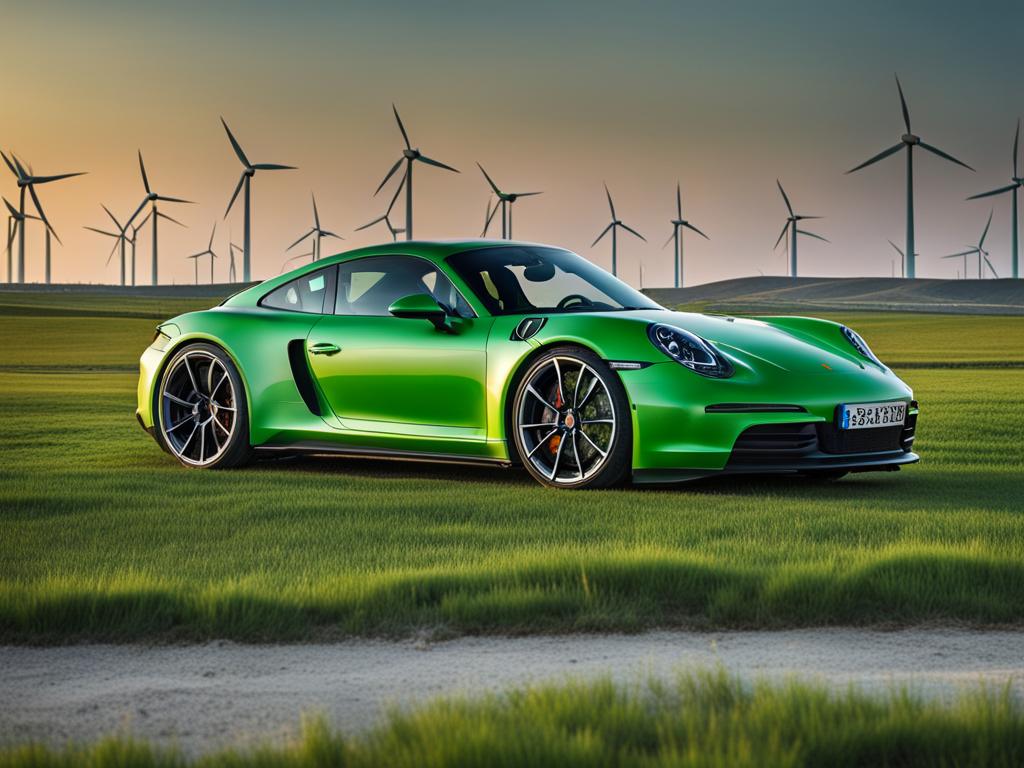
Porsche’s commitment to sustainability goes beyond its own operations. The company actively partners with various organizations and initiatives focused on environmental conservation, renewable energy development, and climate change mitigation. By collaborating with experts and leading research institutions, Porsche continuously seeks to drive forward sustainable technologies and contribute to a greener future.
Conclusion
Porsche, a luxury automotive brand known for its performance and craftsmanship, is primarily manufactured in Germany, the birthplace of the brand. Founded by Ferdinand Porsche, the company revolutionized the automotive industry with its innovative engineering and design. With a strong commitment to excellence and sustainability, Porsche continues to create vehicles that embody the spirit of German engineering.
As the manufacturer of Porsche vehicles, the company upholds rigorous quality control measures and meticulous attention to detail during the manufacturing process. The main production facility is located in Stuttgart-Zuffenhausen, Germany, where the brand’s headquarters are also situated. This state-of-the-art plant showcases advanced manufacturing technologies, ensuring that every Porsche vehicle meets the brand’s high standards of excellence.
Although Porsche has global manufacturing plants in countries like China, Slovakia, and the United States, the heritage and craftsmanship of the brand remain deeply rooted in Germany. Porsche’s commitment to sustainability is evident through its adoption of renewable energy sources, such as eFuels. By utilizing synthetic fuels made from CO2 and hydrogen, Porsche aims to reduce its carbon footprint and contribute to a greener future.
FAQ
What country makes Porsche?
Porsche is made primarily in Germany.
Where are Porsches made?
Porsches are manufactured in Germany, with additional production facilities in China, Slovakia, and the United States.
What is the origin of the Porsche brand?
The Porsche brand originated in Germany, specifically in Stuttgart.
Who is the founder of the Porsche brand?
The Porsche brand was founded by Ferdinand Porsche.
What is the manufacturing plant for Porsche?
The main manufacturing plant for Porsche is located in Stuttgart-Zuffenhausen, Germany.
What is the country of origin for Porsche vehicles?
The country of origin for Porsche vehicles is Germany.
What is Porsche’s commitment to sustainability?
Porsche is actively exploring ways to reduce its carbon footprint and promote eco-friendly practices, including the use of eFuels made from renewable energy sources.
Who produces Porsche vehicles?
Porsche vehicles are produced by Porsche AG, a German automobile manufacturer.

